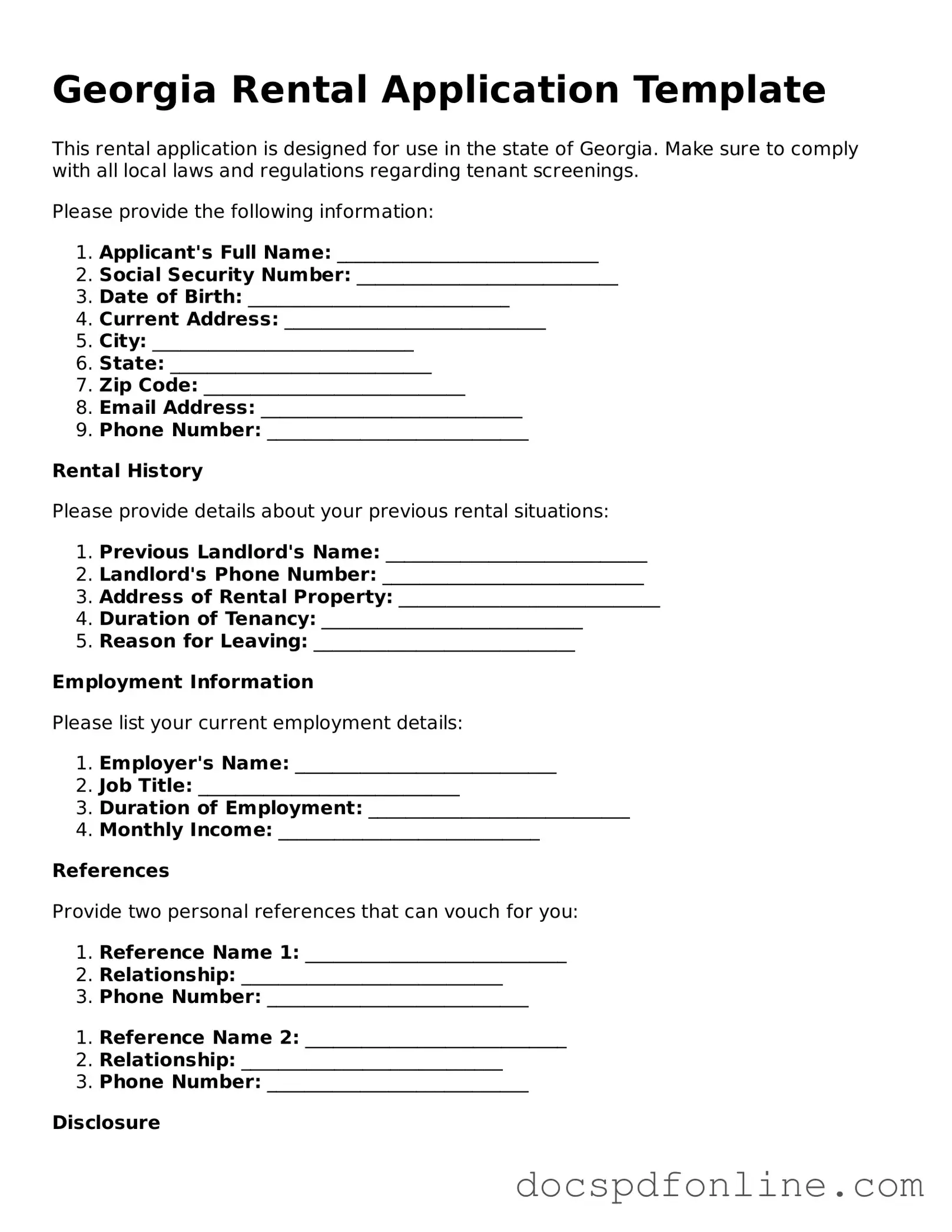Legal Rental Application Template for Georgia
The Georgia Rental Application form is a crucial document used by landlords to evaluate potential tenants. This form collects essential information, helping property owners make informed decisions about renting their properties. Understanding how to complete and submit this application can significantly impact your chances of securing a rental home.
Launch Editor Now

Legal Rental Application Template for Georgia
Launch Editor Now
Save time — finish this form fast
Finish Rental Application online — edit, save, download made easy.
Launch Editor Now
or
↓ PDF File
